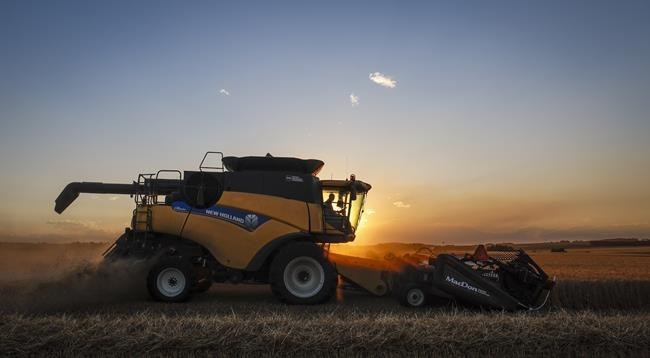TORONTO — A new report says more than 40 per cent of farm operators will retire over the next decade, leaving saąúĽĘ´«Ă˝ with a shortage.
The report from the Royal Bank of saąúĽĘ´«Ă˝, Boston Consulting Group Centre for saąúĽĘ´«Ă˝â€™s Future and Arrell Food Institute at the University of Guelph says the country will be short 24,000 general farm, nursery and greenhouse operators.
It also estimates that 66 per cent of producers do not have a succession plan in place.
To address the shortage and lack of succession plans, the report says saąúĽĘ´«Ă˝ will need to accept 30,000 permanent immigrants by 2033 to take over existing farms and greenhouses or establish their own.
It also recommends the country build a new pipeline of domestic operators and workers by bolstering agriculture education and increasing spending on automation, which can make existing farms more efficient.
The report says the shortage will come at critical moment because saąúĽĘ´«Ă˝'s agricultural sector will need to produce significantly more food for a growing world population, but must also cut emissions to meet climate targets.
This report by The Canadian Press was first published April 10, 2023.
Companies in this story: (TSX:RY)
The Canadian Press



